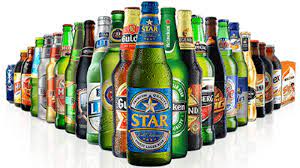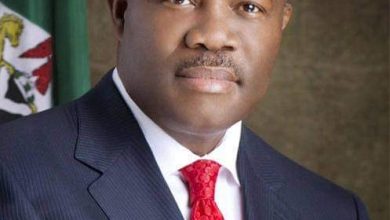Nigeria Breweries: The bears are thirsty for its current valuation

Flashback; In early 2018, Nigeria Breweries reported a profit after tax of N33 billion for the period ended December 2019 compared to N28.4 billion a year earlier. Investors loved it!
The share price of the company rose to as high as N108 per share and then it stopped rising. Since then, the bears have dominated with NB Plc’s share price averaging N50 per share.
Not only has its share price tanked, but its earnings have also fallen drastically in naira terms and when you adjust for dollar depreciation. For example, in 2021 it reported a profit after tax of N12.6 billion while this year it is on track to cross N19 billion for the first time since 2018.
It appears investors are seeing its recent earnings rise as a positive and rewarding its share price with a recent surge that has led to a 14.6% pop this year.
Tailwinds: The Company reported a profit after tax of N14.755 billion up from N8.217 billion a year earlier, representing a 79.57% growth, exceeding its 5-year earnings CAGR and the Beverage industry by 18%.
- https://58958b320e507e7cdc1e9c9a3f2d9477.safeframe.googlesyndication.com/safeframe/1-0-40/html/container.html?n=0 The financial statements show that revenue was N393.449 in 9M 2022 representing a growth of 27.21% from N309.281 billion a year earlier.
- They also reported an EPS growth of 78.43% year-on-year to N1.82 in 9M 2022, compared to N1.02 a year earlier.
- The company’s trailing twelve months’ earnings per share is 1.96 per share and higher than the earnings per share reported in the full year of 2021.
- In December 2022, the company approved a bonus of one share for every four shares, amounting to 2.1 billion bonus shares valued at N84 billion to qualifying shareholders.
These tailwinds are perhaps why the company’s share price started bullish this year. The share price closed at N47 at the close of business on Friday, December 13, 2023, up 14.63% YtD.
But there are headwinds too: The consumer goods sector experienced significant headwinds; the country’s sluggish economic growth, which has hurt consumers’ discretionary spending, the higher excise tax imposed on alcoholic beverages, the negative effect of currency devaluation and inflationary pressure have kept the operating costs elevated.
- Nigeria’s consumer goods manufacturing sector, for instance, recorded a 28% rise in operating expenses in the first nine months of 2022.
- These constraints resulted in undulating revenue and bottom-line performances, especially in Q3 2022.
- For instance, NB’s recorded a loss after tax of N3.987 billion in Q3 2022 from a profit after tax of N498.373 million recorded in Q3 2021 on the back of higher operating costs.
- For some context, imagine that in 2017 when revenue was N344 billion total operating expense was N88.6 billion.
- It has incurred an operating expense of N121.6 billion in the first 9 months of this year with revenues of N393 billion. Operating profit margins have gone from 16% in 2017 to single digits today.
- Also, the company has a high debt profile. Over the past five years, NB’s debt to equity has increased from 15.8% to 61.6% as of September 30, 2022. And at a Net debt to equity ratio of 58, the brewer’s debt profile is considered high though, debt is well covered by operating cash flow and EBIT is about 3.4x of interest payments.
- Following the redemption of its Commercial Paper Notes, the Company’s interest-bearing liabilities (excluding lease liabilities) were halved to approximately ₦28 billion as of 31 December 2021.
- But its recent plan to raise N20 billion from commercial paper issuance to support its short-term working capital and other cash demand from the local debt market may exacerbate the company’s financial health.
So is is overvalued? Nigerian Breweries Plc has recorded a decline in its earnings over the past five years at a compounded annual growth rate (CAGR) of -17.45%.
https://58958b320e507e7cdc1e9c9a3f2d9477.safeframe.googlesyndication.com/safeframe/1-0-40/html/container.html?n=0 This means that the company’s earnings have declined by 17.45% per year over the past 5 years; from N33.044 billion in 2017 to N12.666 billion in 2021 FY.
- At N47, the brewer is trading at a trailing twelve months price-to-earnings ratio of 23.93x, which is higher than the peer average of 14.9x and the global beverage industry average of 20.6x, which makes it expensive.
- Also, the stock is trading at a tangible price-to-book ratio of 2.35x as of last fiscal year’s end, meaning that its market value is nearly 2.4 times its net tangible assets. At that multiple, it is difficult to understand why its market capitalization was as much as N421 billion when its net tangible assets were just N24.148 billion.
- Even its return on equity is low at 10.4% compared to the industry’s 15.1%.
- The dividend yield on the stock is a meager 2.7%. This is not notable compared to the bottom 25% of dividend payers in the NG market and low compared to the top 25% of dividend payers in the Ng market.
- Payments have been volatile in the past 10 years and have fallen over the past 10 years and cannot be relied on.
The bulls have appeared for this stock of late but it is only a matter of time before the bears return to eat up the current valuation. FROM THE NAIRAMETRICS






